Search Results
Showing results 1 to 20 of 39
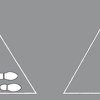
Walking Polygons
Source Institutions
In this activity, learners walk the sides and interior angles of various polygons drawn on the playground. As they do so, learners practice rotating clockwise 180° and 360°.

Jumping to Conclusions
Source Institutions
In this online brain stumper, the bottom half of a series of letters is covered. You may think you know what it says, but remove the black bar to see if you're right.

Paper Airplanes
Source Institutions
In this activity, learners explore the properties of paper by constructing and modifying paper airplanes.

Black Magic (Color Chromatography)
Source Institutions
With a coffee filter, a black marker, and a cup of water, discover the secret colors hidden in black ink.

Tiny Pants Photo Challenge
Source Institutions
In this activity, learners use a simple trick of perspective to dress friends in tiny cutout clothing. Learners make tiny pants out of card stock and tape them to the end of a stick.
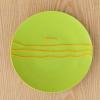
Cutting Pi
Source Institutions
In this activity, learners use a string and pair of scissors to find pi in the world all around them. Take the circumference of a round object with string and cut the string to that length.

Shrinking Spot
Source Institutions
In this activity, learners control the (apparent) size of a hole with their brain.
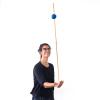
Balancing Stick
Source Institutions
In this quick and simple activity, learners explore how the distribution of the mass of an object determines the position of its center of gravity, its angular momentum, and your ability to balance it
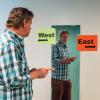
Mirror Reversal
Source Institutions
Challenge popular misconceptions, learners explore how a mirror actually reflects an image in this activity.
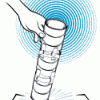
CANdemonium: Make a Drum Out of Recycled Cans
Source Institutions
With three cans and some tape, make a drum that you bonk down on any surface to produce a variety of sounds. This activity also teaches you about pitch, vibration, and frequency.

Bernoulli Levitator
Source Institutions
Demonstrate the Bernoulli Principle using simple materials on a small or large scale.
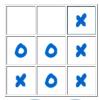
Tic-Tac-Toe
Source Institutions
In this online version of the classic paper and pencil game, learners practice looking ahead to anticipate an opponent's move.
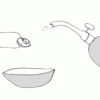
Physical Change
Source Institutions
In this activity, learners use heat to separate zinc and copper in a penny. This experiment demonstrates physical properties and how physical change (phase change) can be used to separate matter.
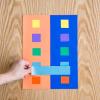
Color Contrast
Source Institutions
Do you have a hard time matching paint swatches with your furniture? When you consider human perception, color is context dependent.

Magnetic Shielding: Magnetic lines stop here
Source Institutions
Testing magnets is always a fun pastime, but here, we're going beyond "will it attract the magnet?" In this activity, learners will investigate which materials allow magnetic fields to pass through or

Eyedropper Hydrometer: Buoy your understanding of density
Source Institutions
Build a hydrometer (measures the density of a liquid) using a pipet or eyedropper.
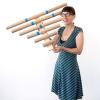
Pipes of Pan
Source Institutions
Create an instrument that you don't play--you just listen to it through tubes of various lengths.
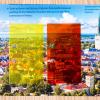
Color Table: Color your perception
Source Institutions
Look at pictures through different color filters and you'll see them in a new way. People have used color filters in beautiful photography or sending secret messages.
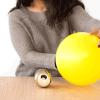
Remote Control Roller: Experiment with Static Electricity
Source Institutions
This activity is an investigation of static electricity. What happens when you get "static cling?" Basically, you pile up electrons on one thing, which attracts the protons in something else.
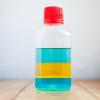
Klutz-Proof Density Column
Source Institutions
Making liquids of different densities to perfectly lay on top of each other can be a frustrating exercise. The Exploratorium created this activity as a fool proof way of making a density column.
